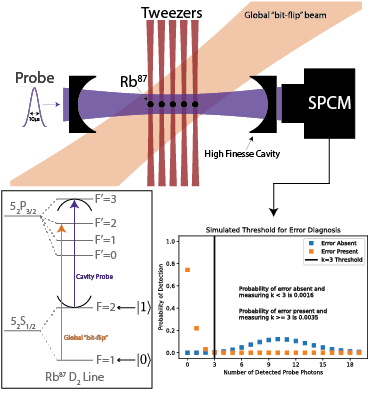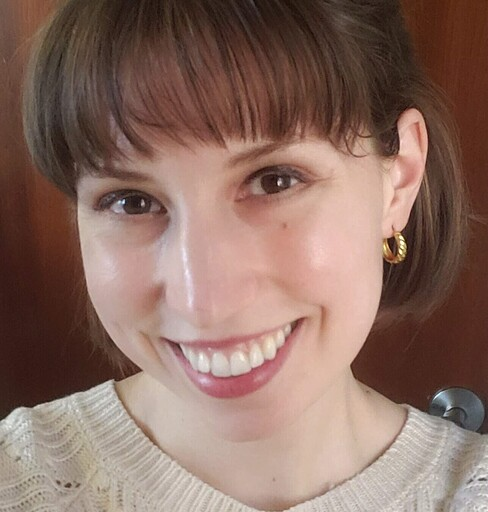
Fast Non-Destructive Error Diagnosis in Cavity-Coupled Atom Arrays
Alyssa Rudelis | Beili Hu | Josiah Sinclair | Joshua Ramette | Edita Bytyqi | Allen Chiu | Luke Stewart | Vladan Vuletić
Rydberg arrays are an attractive platform for quantum computing due to rapid increases in gate fidelities (≲99.9%), qubit number (256), and qubit connectivity (any-to-any). Two main challenges remain: fast nondestructive state readout and scaling beyond individual modules. We propose a novel architecture for Rydberg quantum computing to eventually address both by coupling arrays of atoms to a high-finesse optical cavity. We begin with a proposal for fast readout for error diagnosis. Our scheme relies on an ability to dynamically couple atoms to the cavity, μs global cavity readout and binary search to identify errors. A 1D array of Rb87 atoms is prepared along the optical cavity in a state |0>, and state |1> is chosen to have a transition resonant with the cavity. A global laser pulse is applied for a duration giving probability p of a bit flip. A weak probe through the cavity indicates on a single-photon counting module whether the array contains a bit flip. If an error is present, qubit-cavity couplings are modified and additional probe photons are sent to binary search for the error(s). Finally, the diagnosis is validated with fluorescence imaging. In future work, single qubit rotations for error correction, helper qubits and Rydberg-mediated CNOT gates will be developed.
Funding Sources: NSF | NSF CUA | NASA | MURI through ONR

Alyssa Rudelis
Affiliation: MIT, Graduate Student
Areas of Research
-
-
Atomic, Molecular, & Optical Physics
-
Open to
-
- Internships
